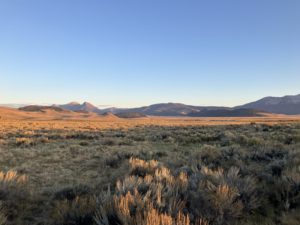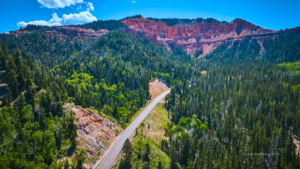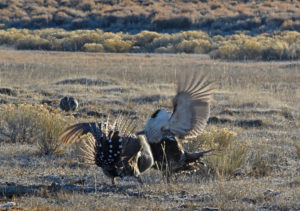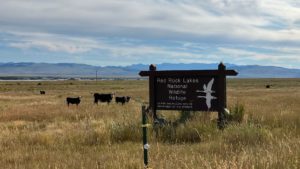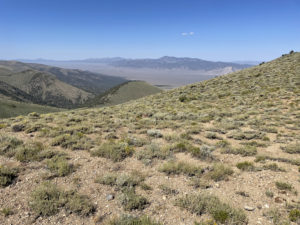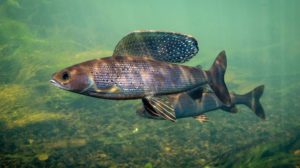For Immediate Release – August 12th, 2025
Contacts:
- Adam Bronstein, Western Watersheds Project, adam@westernwatersheds.org, (541) 595-8034
- Jennifer Mamola, John Muir Project, jennifermamola@johnmuirproject.org, (202) 657-7270
- Josh Schlossberg, Eco-Integrity Alliance, eia@eco-integrityalliance.org, (720) 615-4843
- Shannon Wilson, Eco Advocates NW, tsuga@efn.org, (541) 221-9932
154 Organizations Call on Congress to Strengthen and Permanently Protect America’s Roadless Areas
WASHINGTON, D.C. — Today, over 150 conservation organizations from across the country submitted a letter urging Congress and the U.S. Department of Agriculture (USDA) to go above and beyond preserving the current Roadless Rule and instead enact strong, loophole-free, permanent protections for the nation’s inventoried roadless areas. The USDA announced on June 23, 2025 that the Roadless Rule would be rescinded.
The Fortify Roadless Protections letter — drafted by Eco Advocates NW, Eco-Integrity Alliance, John Muir Project, and Western Watersheds Project — calls for legislation that would end all commercial logging, road construction, livestock grazing, and other extractive activities within these irreplaceable landscapes. Conservation groups are offering a legislative solution to strengthen protections in Congress.
“Our roadless lands are the best of what is left of America’s wide open spaces — generally undeveloped and wild,” said Adam Bronstein, Oregon director of Western Watersheds Project. “Yet in many places, they are subjected to livestock grazing, road building, logging, and mining. The Roadless Rule was an important first step but we must seek bulletproof and durable solutions. Like many administrative actions, we’re learning that maintaining the status quo leaves us vulnerable.”
“As crucial as it is to stop the roll back of the existing Roadless Rule, right now 18,500 acres of supposedly protected Colorado Roadless Areas are on the chopping block in what appears to be the largest logging project in state history,” said Josh Schlossberg, Colorado Advocate for Eco-Integrity Alliance. “Until we close such massive loopholes, these precious ecosystems will remain under constant threat.”
Inventoried roadless areas encompass 58.2 million acres of national forest lands across the United States. “Roadless areas are vital connectors that link wilderness, parks, and habitats, forming a network essential for wildlife movement and ecosystem resilience. Yet loopholes continue to allow harmful activities that break these connections, threatening the long-term survival of these landscapes and the communities depending on them,” said Shannon Wilson of Eco Advocates NW. Loopholes in the current 2001 Roadless Rule — and in separate state rules in Colorado and Idaho — allow destructive activities under the guise of “forest health” or wildfire mitigation.
The coalition’s letter outlines specific policy improvements, including:
- Closing loopholes that permit logging and road-building in the name of wildfire risk reduction, despite scientific evidence showing such activities do not protect communities.
- Prohibiting commercial grazing and motorized recreation to protect watersheds, soils, wildlife, and cultural resources.
- Strengthening NEPA review to ensure full public transparency and environmental safeguards.
- Updating roadless inventories to include qualifying areas identified since 2001.
“We need more wild, intact ecosystems—vibrant landscapes that include everything from bustling post-fire snag forests to ancient old growth,” said Jennifer Mamola of the John Muir Project. “Nature has governed itself for eons and must continue to do so if we’re to protect biodiversity, store carbon, and sustain air and clean water. Humans shouldn’t have the final say over these irreplaceable lands—we need to pass permanent protections that respect and safeguard the natural balance that sustains us all.”
About the Drafting Organizations:
Eco Advocates NW promotes genuine solutions for the health of Earth’s communities of life—human, animal, plant, fungal—through grassroots advocacy and education.
Eco-Integrity Alliance’s mission is to unite grassroots ecosystem advocates through common campaigns of mutual support.
John Muir Project is a nonprofit dedicated to protecting our public lands, promoting community-based wildfire solutions, and challenging the use of woody biomass as a ‘clean’ energy source.
Western Watersheds Project is a nonprofit environmental conservation group dedicated to protecting and restoring native wildlife and watersheds throughout the American West.
###

